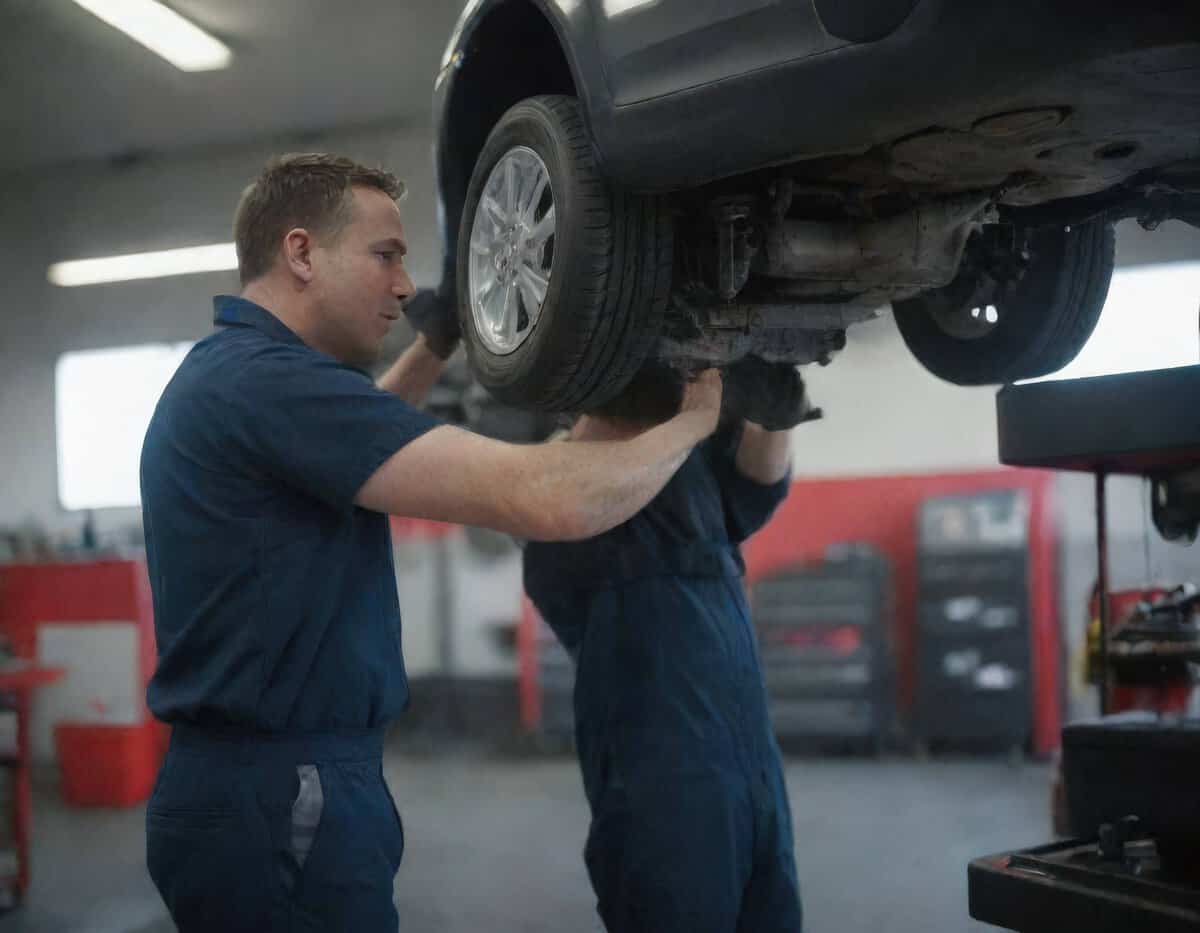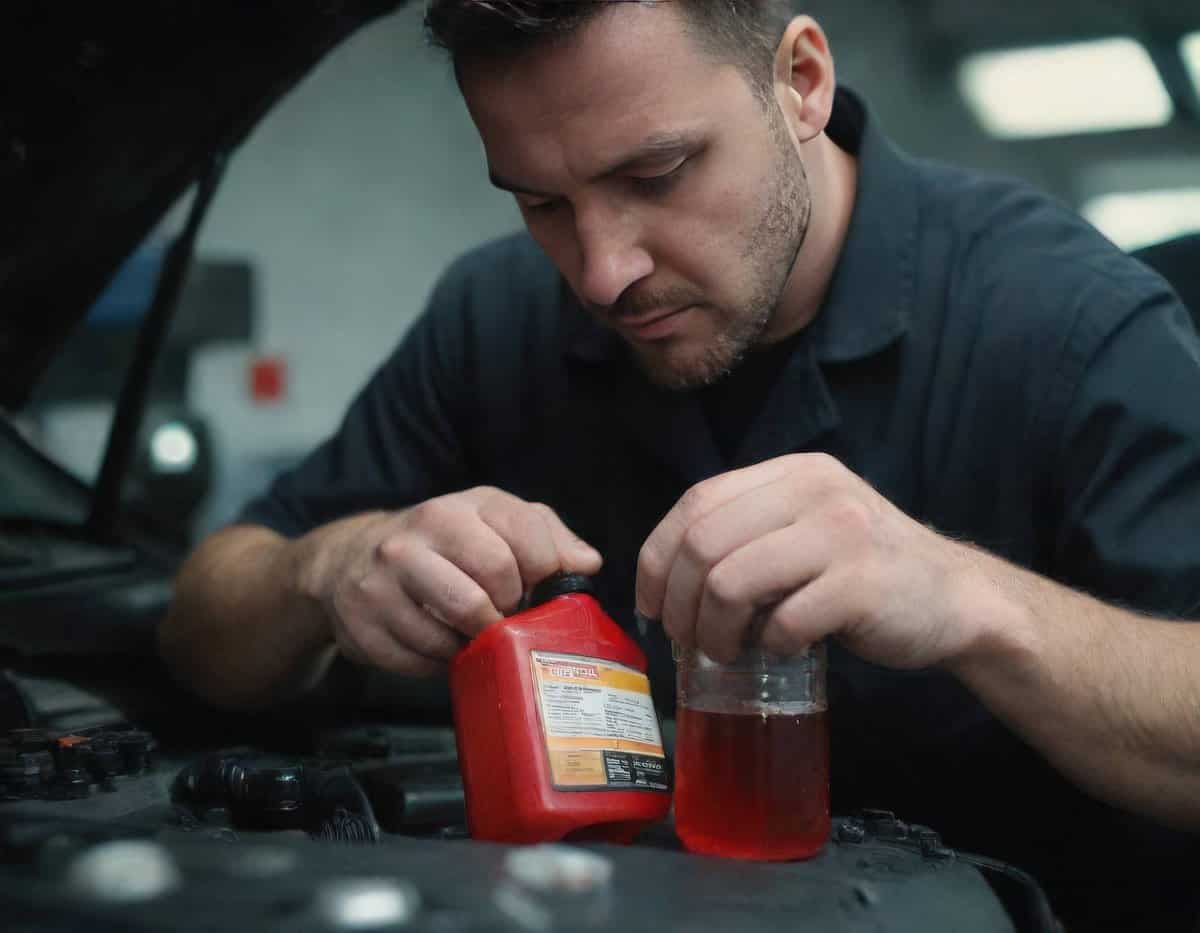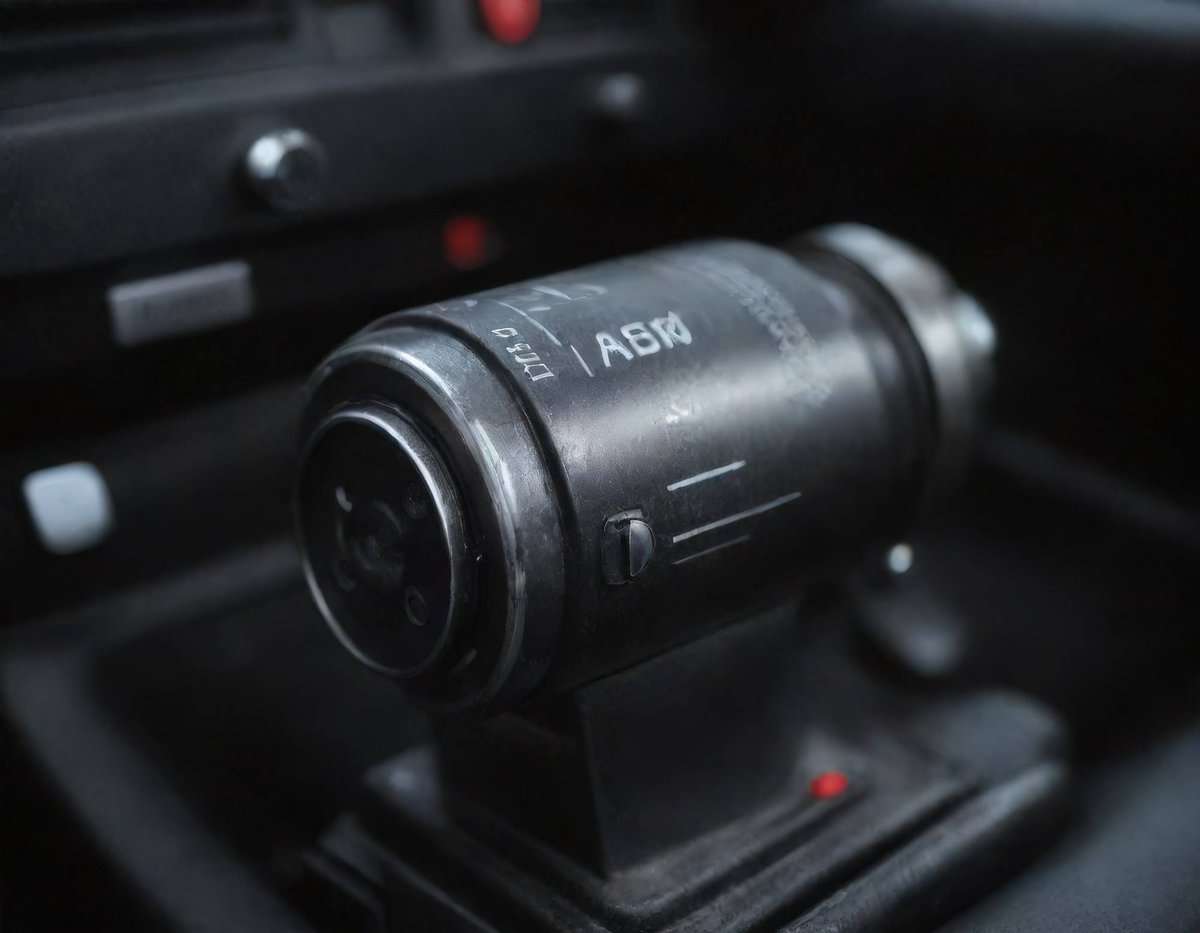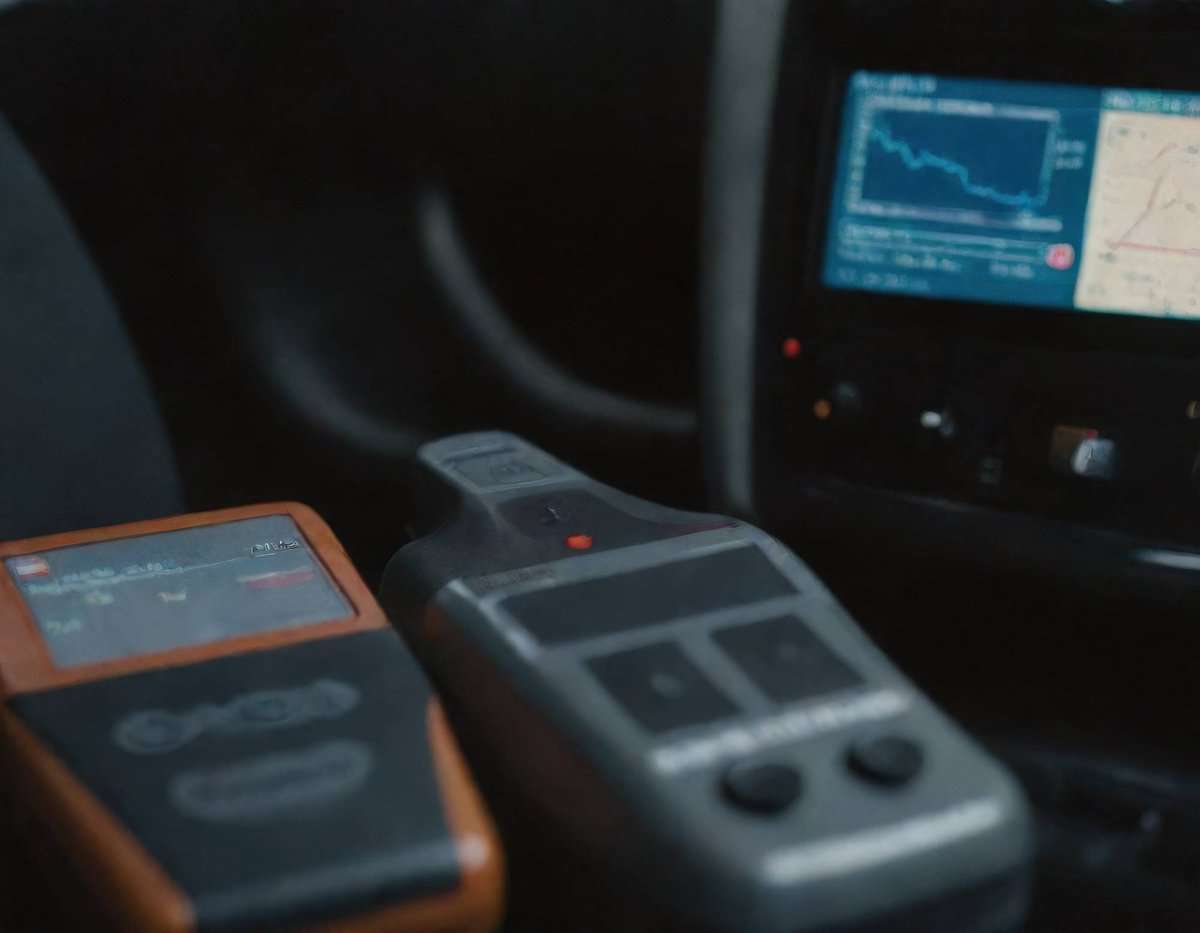When driving an automatic, you might not think much about what goes on under the hood, but certain habits and neglect can seriously damage your car’s gearbox. For instance, not keeping an eye on fluid levels or ignoring regular maintenance schedules puts unnecessary strain on complex systems like automatic transmissions. This strain can lead to transmission repairs, which are often costly and can be avoided with proper care.
Another common mistake is leaking transmission fluid, which is like the lifeblood for your gearbox. Without it, gears grind, overheat, and fail. Ignoring warning signs like dirt and contaminants in the fluid or a decrease in performance can cause your transmission to develop problems. It’s crucial to service your transmission regularly to extend the life of your car and avoid a trip to the repair shop.
Understanding the Automatic Gearbox
An automatic gearbox is a vital component in your vehicle, responsible for shifting gears without direct input from the driver. This allows for a smoother and more effortless driving experience. However, understanding its operation and the importance of maintenance can prevent common issues and ensure its longevity.
The Role of the Automatic Gearbox in Vehicle Operation
In automatic cars, the gearbox automates gear changes, making driving less physically demanding compared to manual transmissions. It’s important to note that practices beneficial in manual vehicles, like downshifting to slow down, can be harmful to automatic transmissions. Instead, allowing the car to slow down naturally without switching gears is best for the longevity of the system.
 How Gearboxes Work: A Simplified Overview
How Gearboxes Work: A Simplified Overview
The automatic gearbox uses a complex system of hydraulic fluid to transfer the engine’s power to the wheels. This system automatically adjusts the gears depending on the car’s speed and engine load, providing a seamless driving experience. Properly maintaining this system, especially the transmission fluid, is crucial for the gearbox’s performance and longevity.
Common Indicators of Gearbox Problems
Recognizing early signs of gearbox trouble can save you from costly repairs down the line. Key indicators include difficulty in shifting gears, unexplained surges in power, or the engine revving unusually high before shifting. These symptoms suggest it’s time to check your transmission.
Unusual Noises and the Dreaded Burning Smell
If you hear whining, clunking, or humming noises from your car, or if you notice a burning smell, these are clear signs your gearbox is in distress. These issues typically indicate low fluid levels or overheating components, both of which require immediate attention to prevent further damage.
The Importance of Heeding Warning Signs Early
Ignoring these warning signs can lead to significant damage to both automatic and manual transmissions. Even if the car is still moving, any delay in addressing these indicators can result in irreversible harm. Proactively dealing with these issues ensures your gearbox remains in good condition, safeguarding your car’s performance and value.
 Key Practices to Avoid Damage
Key Practices to Avoid Damage
To protect your gearbox and avoid damage to your transmission, it’s essential to get it serviced regularly. Regular maintenance checks and fluid changes can significantly reduce the risk of gearbox problems and ensure your vehicle runs smoothly for years to come.
The Consequences of Shifting Gears Improperly
In automatic transmission vehicles, shifting gears improperly, such as moving into reverse before coming to a complete stop, can cause gear slippage and other transmission issues. This practice puts undue stress on the transmission, leading to premature wear and potential failure.
Why Shifting Into Drive or Reverse When Not Fully Stopped Hurts Your Gearbox
When you shift gears in an automatic transmission car without fully stopping, it interrupts the linear operation of the transmission system. Cars with automatic transmissions are designed for smooth transitions between gears. Forcing these shifts while the vehicle is in motion can destroy your transmission over time, leading to expensive repairs.
 The Risk of Using Wrong Transmission Fluid
The Risk of Using Wrong Transmission Fluid
Using the correct fluid levels and type is critical for the health of your gearbox. The wrong type of transmission fluid can cause significant damage, leading to unsafe driving conditions and potentially hefty repair costs. Always ensure you’re using the right fluid for your vehicle to keep it running safely and efficiently.
How Incorrect Fluids Can Damage Your Automatic Transmission
Incorrect or contaminated transmission fluid can wreak havoc on your automatic transmission. Such fluids can impair the transmission’s ability to maintain pressure, lubricate parts, and keep components cool, leading to overheating, increased friction, and ultimately, failure.
The Dangers of Ignoring Regular Maintenance
Regular maintenance is not just a recommendation; it’s a necessity to prevent damage to your transmission. Serviced regularly, your transmission can avoid common issues that arise from neglect, such as buildup of dirt and debris or deteriorating components.
 How Skipping Servicing Can Lead to Major Gearbox Problems
How Skipping Servicing Can Lead to Major Gearbox Problems
Neglecting regular service appointments can lead to a buildup of warning signs, such as hearing strange noises or experiencing unusual shifts. These symptoms often precede major gearbox problems. Addressing these issues early through routine maintenance can prevent costly repairs and extend the life of your transmission.
Specific Actions That Threaten Your Gearbox
There are several specific actions that can threaten the health of your gearbox. Being aware of these and avoiding them can save you from unnecessary gearbox failure and the associated repair costs. Keeping an eye out for symptoms of damage and taking preventative measures is key to maintaining your gearbox’s health.
Heavy Towing Beyond Your Vehicle’s Limit
When I tow something heavier than what my car is designed to handle, I’m really asking for trouble. Every vehicle has a towing limit set by the manufacturer, and it’s there for a good reason. Towing heavy loads can put excessive strain on the engine or transmission. This is because the additional weight requires more power and effort to move, which not only increases fuel consumption but also causes significant wear and tear on the transmission. By checking the owner’s manual, I can find out the exact towing capacity of my vehicle to avoid any damage.
 Understanding How Overloading Affects the Transmission
Understanding How Overloading Affects the Transmission
Towing more than my vehicle can handle affects the transmission in several ways. The internal components, such as bands and clutches, are under a lot of stress when moving heavy loads. This stress leads to increased wear and tear on the transmission. Additionally, the extra workload can cause the transmission to overheat, pushing metal shavings and debris throughout the system. This not only hampers performance but can lead to severe damage over time. It’s a situation I definitely want to avoid to ensure the longevity of my car’s transmission.
Neglecting to Use the Parking Brake
It might seem like a small thing, but not using the parking brake can actually harm my car’s transmission. Especially in automatic cars, some of us might skip this step. However, engaging the parking brake helps to take the pressure off the car’s transmission. This simple act of using the parking brake can prevent unnecessary strain and contribute to the overall health of the transmission.
 The Role of the Parking Brake in Protecting Your Gearbox
The Role of the Parking Brake in Protecting Your Gearbox
I’ve learned that engaging the parking brake is crucial for protecting my car’s transmission. When the parking brake is engaged, it locks the wheels, stabilizing the vehicle. This stability means the output shaft and the internal components of the transmission aren’t under pressure to keep the car in place. So, by making it a habit to use the parking brake, I’m essentially saving my car’s transmission from damage that can occur over time.
Failing to Address Minor Issues Promptly
I’ve noticed that small issues with my car’s transmission don’t stay small for long. Ignoring warning signs like hearing strange noises or feeling the car shake can lead to big problems. These are early indicators that something isn’t right. By paying attention to these signs and acting quickly, I can prevent minor issues from turning into major, costly repairs.
Why Small Gearbox Problems Shouldn’t Be Ignored
Even seemingly minor gearbox issues can be a sign of something more serious. That odd noise or occasional stutter during gear shifts might not seem like much, but they can be early warning signs of wear and tear that could lead to bigger problems. Addressing these issues promptly can save me a lot of trouble and money in the long run. It’s always better to fix a small problem now than a big one later.
 Preventative Measures for Gearbox Longevity
Preventative Measures for Gearbox Longevity
To keep my car’s gearbox in top shape, I follow a few key practices. Regular maintenance, using the correct transmission fluid, and driving wisely all contribute to the longevity of the transmission. By taking these preventative measures, I can avoid many common issues that lead to gearbox damage.
Regular Checks and Maintenance Schedules
Sticking to a regular maintenance schedule is essential for my car’s health. This includes checking the transmission fluid regularly to ensure it’s at the right level and not overly contaminated. Keeping up with these checks helps my car run smoothly and prevents bigger issues down the line.
The Importance of Transmission Fluid Checks and Changes
One thing I always keep an eye on is the transmission fluid. It’s vital for cooling and lubricating the moving parts of the transmission. The owner’s manual provides guidance on how often the fluid should be changed. This prevents the buildup of metal shavings and debris, which can damage the internal parts. Regular fluid checks and changes are a simple yet effective way to maintain my gearbox’s health.
Proper Driving Practices to Preserve Gearbox Health
How I drive can have a big impact on my transmission’s health. Avoiding sudden starts and stops and not shifting into the wrong gear are basic practices that go a long way in preserving the gearbox. Being mindful of how I drive helps keep my car’s transmission in good condition.
Tips for Shifting Gears and Towing Wisely
When it comes to shifting gears and towing, there are a few tips I always follow. First, I make sure my car is completely stopped before shifting into drive or reverse. And when towing, I never exceed my vehicle’s recommended weight limit. These practices help prevent unnecessary strain on the gearbox, ensuring its longevity.
Expert Advice on Automatic Gearbox Care
Taking care of my automatic gearbox isn’t just about regular maintenance; it’s also about understanding how it works and the best practices for keeping it running smoothly. Listening to expert advice has helped me make informed decisions about my car’s transmission care.
Choosing the Right Transmission Fluid
The right transmission fluid is crucial for my gearbox’s performance. It needs to match the specifications outlined in the owner’s manual. Using the wrong fluid can lead to poor lubrication, overheating, and eventually transmission failure. That’s why I always double-check the fluid type before adding or changing it.
Recommendations from Gearbox Specialists
Following recommendations from gearbox specialists has been a game-changer for me. They’ve advised me on the best types of transmission fluid and maintenance practices for my specific car model. Their expertise ensures that I’m providing the best possible care for my gearbox, which helps prevent potential issues and extends its life.
When to Consult a Transmission Specialist
Knowing when to consult a transmission specialist is key. At the first sign of trouble, be it strange noises or a change in how my car shifts, I don’t hesitate to seek professional advice. A specialist can diagnose and fix problems early, preventing costly transmission repairs down the line. It’s a step I take seriously for the health of my car.
Signs That It’s Time for Professional Help
Knowing when to seek professional help can save your automatic gearbox from severe damage. Signs like unusual noises, difficulty in shifting gears, or a noticeable delay in gear engagement are clear indicators. Especially if you notice any issues with your internal transmission, it’s crucial not to delay. Professionals can accurately diagnose and address these complex problems, preventing further damage to your vehicle.
The Ultimate Guide to Solving Gearbox Problems
Addressing gearbox problems effectively requires understanding potential issues like torque converter malfunctions or clutch pedal inconsistencies. Whether you’re facing minor hiccups or major car repairs, this guide aims to equip you with the knowledge to identify and resolve gearbox issues, ensuring your vehicle runs smoothly.
DIY Fixes vs. Professional Repair Services
While some gearbox issues can be tackled with DIY fixes, it’s essential to know when to call in the experts. Minor adjustments and fluid changes can often be handled at home. However, problems affecting your vehicle’s transmission integrity require professional diagnosis and repair to prevent costly damages and ensure your safety on the road.
What You Can Handle and When to Call the Experts
For gearbox maintenance, there are tasks you can handle, like checking the transmission fluid level and ensuring it’s clean. However, if you encounter persistent issues or the signs of internal transmission damage, it’s time to consult the experts. They have the tools and expertise to diagnose and fix problems beyond the scope of typical DIY repairs.
The Cost of Ignoring Gearbox Maintenance
Ignoring gearbox problems can lead to significant repair costs down the line. Minor issues can quickly escalate, affecting other parts of your vehicle and ultimately requiring extensive and expensive repairs. Regular maintenance is key to avoiding these costs.
A Look at Potential Repair Bills for Neglected Transmissions
Overlooking gearbox maintenance can lead to hefty repair bills. Neglected transmissions may require complete overhauls or replacements, significantly impacting your finances. Early detection and repair of gearbox problems are crucial in preventing these costly outcomes.
Wrapping Up: Ensuring the Health of Your Automatic Gearbox
Maintaining the health of your automatic gearbox is vital for your vehicle’s performance and longevity. By understanding common problems and adhering to maintenance schedules, you can ensure smooth operation and avoid costly repairs.
Key Takeaways for Maintaining a Healthy Gearbox
Regular checks, proper fluid use, and attentive driving practices are essential for preserving gearbox health. Recognizing warning signs early and seeking professional help when necessary can prevent major issues and extend your gearbox’s lifespan.
Recap of Best Practices and Warning Signs to Watch For
To maintain a healthy automatic transmission car, always use the correct fluid, avoid shifting into drive or reverse before coming to a complete stop, and follow your vehicle’s towing capacity. Be mindful of unusual noises and ensure linear operation by heeding warning signs early. These practices help prevent situations that could destroy your transmission.
 The Final Word on Preventing Gearbox Damage
The Final Word on Preventing Gearbox Damage
Preventing gearbox damage requires a proactive approach to vehicle maintenance. Regular checks of auto parts, such as the car battery and engine and transmission mounts, along with proper shifting gears habits, can safeguard your manual gearbox and automatic transmission alike. Embrace these habits for the long-term health of your vehicle.
Embracing Proactive Care for Long-Term Transmission Health
Maintaining your gearbox through proactive care ensures your vehicle’s reliability and performance. Regular maintenance, alongside smart driving and towing practices, keeps gearbox issues at bay. Embrace these strategies to enjoy a smooth driving experience and protect your investment in your vehicle’s long-term health.
Read more:








